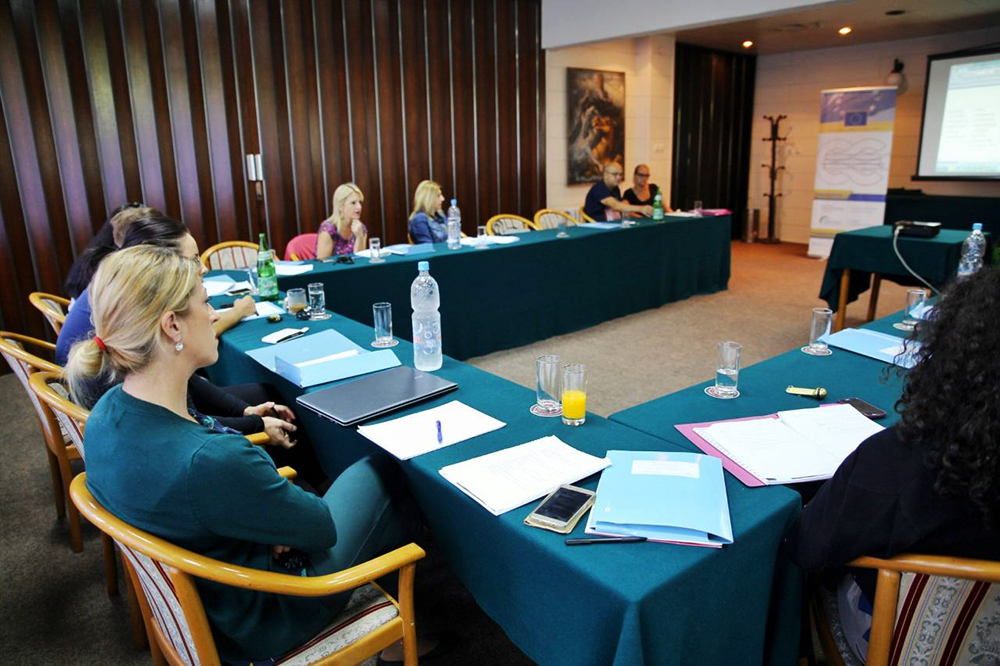Just after the Training for national consultancy teams, Grand hotel in Sarajevo hosted the Training for civil society organisations in Bosnia Herzegovina from 5 to 7 September 2018. This was the first of three national trainings for civil society organisations as part of the Budget Advocacy and Monitoring in countries of South East Europe project.
The training included general information and practical steps in the advocacy process: identifying the issue and causes of the problem, research and budget analysis, stakeholders and advocacy targets, influencing budgets at national and municipal levels, mapping budget information and documents, planning, taking actions, monitoring, anti-corruption, reviewing, evaluation and learning.
Participants came from organisations working in both entities of the country – The Federation of Bosnia Herzegovina and Republic of Srpska: Margina from Tuzla and Zenica, Viktorija from Banja Luka, Proi, Partnership for Health and Asocijacija XY from Sarajevo.
The training was delivered by Darko Antikj from ESE and Vlatko Dekov from HOPS who have developed the model and successfully implemented it in Macedonia.
The training resulted in producing a national plan of action to be implemented by the end of 2019. It includes creating a platform of NGOs for sustainability of harm reduction services, ensuring political support, creation of a budget line in the health budget of the entities of the country, establishing a social contracting mechanism and agreeing on criteria and standards for the services.
















